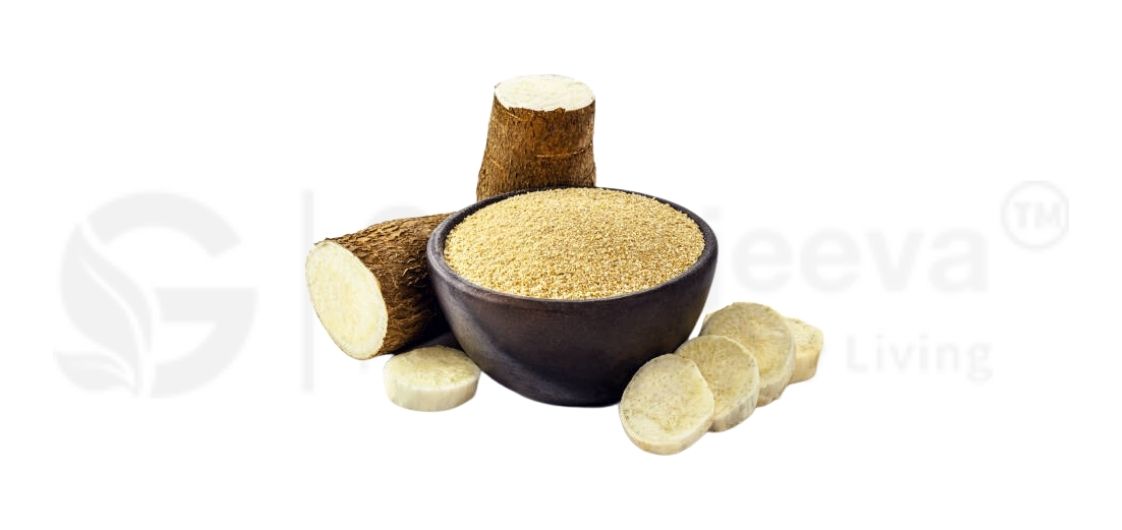Derived from the nutrient-rich cassava root, organic cassava flour is emerging as a game-changer in gluten-free manufacturing. But what makes it stand out in a crowded field of alternative flours?
As the demand for gluten-free products grows, manufacturers constantly seek alternatives to traditional wheat flour. Cassava flour has emerged as a popular choice due to its versatility, affordability, and clean label appeal. From baked goods to pasta, this gluten-free flour offers a reliable solution for brands looking to tap into the expanding gluten-free market.
Market Growth and Consumer Demand
According to a report by Grand View Research, the global gluten-free products market was valued at $5.6 billion in 2021 and is expected to grow at a CAGR of 9.8% through 2030. As the market expands, manufacturers can innovate with ingredients like organic cassava flour, which appeals to gluten-free consumers while meeting clean label demands.
This surge presents a golden opportunity for manufacturers ready to innovate.
Organic Cassava Flour in Gluten-Free Product Manufacturing
Organic cassava flour is produced from the root of the cassava plant, a staple crop in many regions worldwide. It’s naturally gluten-free, grain-free, and nut-free, making it ideal for consumers with specific dietary restrictions. For manufacturers, it provides several functional benefits that extend beyond just being gluten-free.
Key Benefits of Organic Cassava Flour
1. Versatility
Cassava flour has a mild flavor and neutral texture, making it an excellent replacement for wheat flour in various recipes. It works well in bread, cakes, cookies, and even sauces or gravies, allowing gluten-free product manufacturers to create a wide range of offerings without compromising taste or texture.

2. Binding Properties
Unlike some gluten-free flours that require additional binders or stabilizers, cassava flour has inherent binding properties. This reduces the need for extra ingredients, simplifies the formulation process for manufacturers, and helps maintain a clean label, which is increasingly vital to today’s health-conscious consumers.
3. Cost-Effectiveness
For large-scale gluten-free product manufacturing, organic cassava flour is cost-effective compared to other gluten-free alternatives like almond or coconut flour. It also provides a consistent supply, especially in regions where cassava is a staple, ensuring stable production rates for manufacturers.
4. Clean Label Champion
With 73% of consumers willing to pay more for products with clean-label ingredients (according to a 2020 Kerry Group study), organic cassava flour checks all the boxes. It’s natural, organic, and free from common allergens, aligning perfectly with clean-label initiatives.
Applications in Gluten-Free Manufacturing
– Bakery Products: Cassava flour’s light texture makes it an ideal choice for baked goods like bread, cakes, and cookies, delivering a near-wheat consistency without gluten.
– Snacks and Crackers: Gluten-free snack and cracker manufacturers can benefit from the crisp texture cassava flour imparts and its mild taste that complements various flavors.

– Gluten-Free Pasta: Cassava flour works well in gluten-free pasta formulations due to its binding qualities, helping achieve the right texture without additional gums or starches.
Organic Cassava Flour: A Sustainable Choice
Cassava is a drought-resistant crop that requires minimal inputs, making it a sustainable option for manufacturers focused on eco-friendly production. Organic cassava flour also aligns with consumer preferences for sustainably sourced and minimally processed ingredients.
Conclusion
For gluten-free product manufacturers, organic cassava flour presents an opportunity to create high-quality, versatile products that meet consumer demand for allergen-free, clean-label, and sustainable options. As the gluten-free market grows, embracing cassava flour can help brands innovate while maintaining cost-effective production.
**The Food and Drug Administration has not evaluated these statements. This product is not intended to diagnose, treat, cure, or prevent any disease.**








































